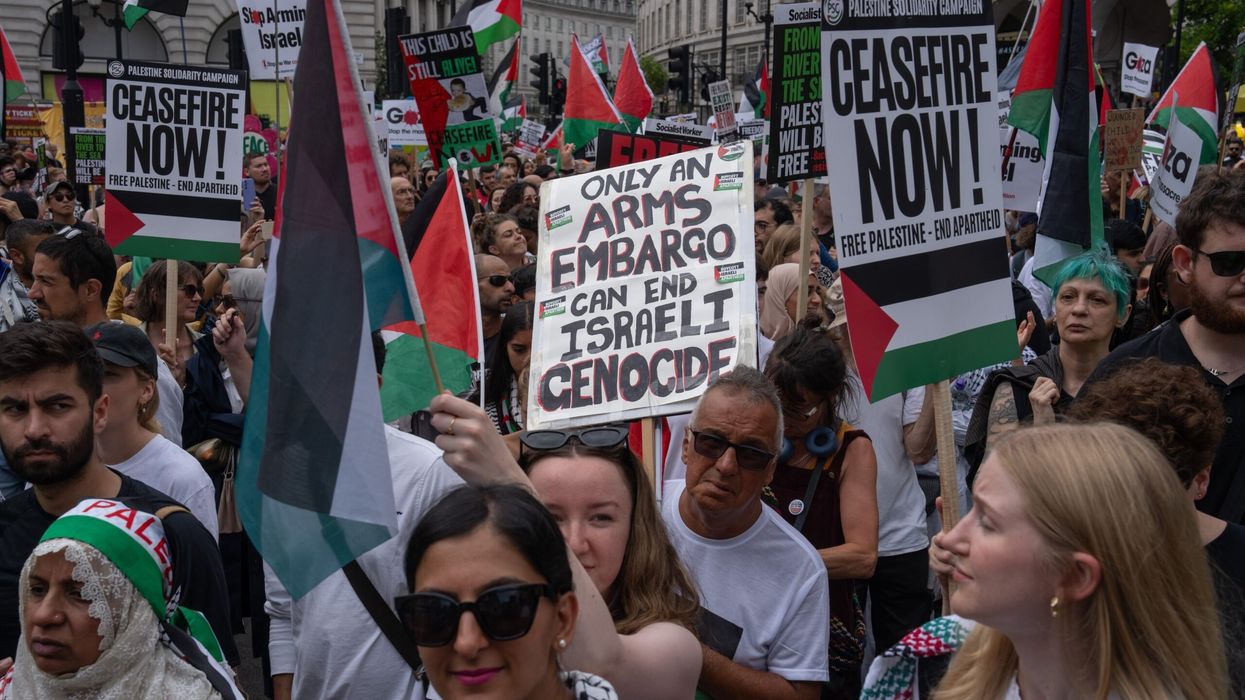THE UK government announced on Monday that it would suspend certain arms exports to Israel, citing a "clear risk" that these weapons could be used in violations of international humanitarian law.
Israel's defence minister Yoav Gallant expressed disappointment over the sanctions, while rights groups argued that the suspensions were insufficient.
Foreign secretary David Lammy informed parliament that the UK would suspend 30 out of 350 arms export licenses following a review of Israel's actions in its conflict with Hamas militants.
He stated that the partial suspension covers items "which could be used in the current conflict in Gaza," including fighter aircraft, helicopters, and drones.
However, Lammy noted that the suspension does not apply to parts for Israel's F-35 stealth fighter jets.
Lammy initiated the review of arms sales shortly after the Labour Party's decisive victory in the July general election. He explained that the decision was based on an assessment indicating a "clear risk" that some UK arms exports to Israel could potentially be used in serious violations of international humanitarian law.
He clarified that the suspension does not represent a judgment on Israel's guilt or innocence and that the situation will continue to be monitored. Lammy emphasised that the UK is "not an international court" and that Britain has not determined whether Israel has breached international law.
Lammy reaffirmed the UK's support for Israel's right to self-defence and stressed that the suspension would not significantly impact Israel's security.
Since taking power in July, Britain's Labour government has called for a ceasefire in the Israel-Hamas war and for accelerated aid deliveries to Gaza. The government's approach to the conflict largely mirrors that of the previous Conservative administration, with officials consistently urging Hamas to release hostages taken during the October 7 attacks.
Some commentators have speculated that Labour, under Keir Starmer—a former human rights lawyer—may adopt a tougher stance toward Israel's military operations in the long term.
Britain's chief rabbi criticised the government's decision to suspend some arms export licences to Israel only a few days after the killing of six Israeli hostages in Gaza.
"It beggars belief that the British government, a close strategic ally of Israel, has announced a partial suspension of arms licences," Ephraim Mirvis said on X.
He said the move would bolster unfounded claims that Israel was in breach of international humanitarian law.
"Sadly, this announcement will serve to encourage our shared enemies," Mirvis said. "It will not help to secure the release of the remaining 101 hostages, nor contribute to the peaceful future we wish and pray for, for all people in the region and beyond."
Last week, the foreign ministry expressed "deep concern" over an Israeli military operation in the occupied West Bank and urged Israel to "exercise restraint" and adhere to international law.
Amnesty International UK’s chief executive, Sacha Deshmukh, described the government’s decision as a delayed acknowledgment of "the very clear and disturbing evidence of Israeli war crimes in Gaza." However, Deshmukh and other rights groups criticised the exemption for F-35 components, calling it a "catastrophically bad decision," given the extensive use of these jets in Gaza.
Deshmukh called for a complete halt to all UK arms transfers to Israel, including components for F-35s supplied to the USA for onward export to the Israeli military.
The UK government has faced legal challenges from rights groups over its export of arms and military components to Israel. According to Britain's strategic licensing criteria, weapons should not be exported if there is a clear risk of their use in international humanitarian law violations, leading to accusations that the government is disregarding its own rules in the Gaza conflict.
(With inputs from agencies)




